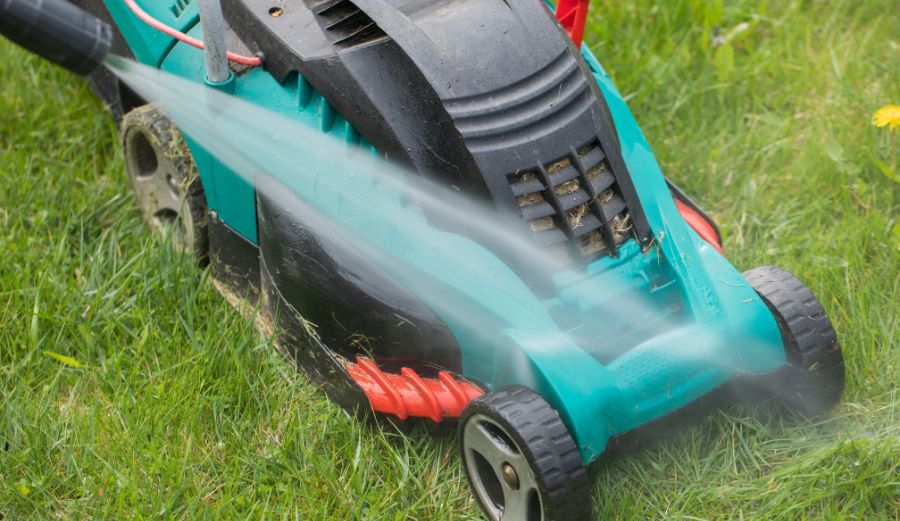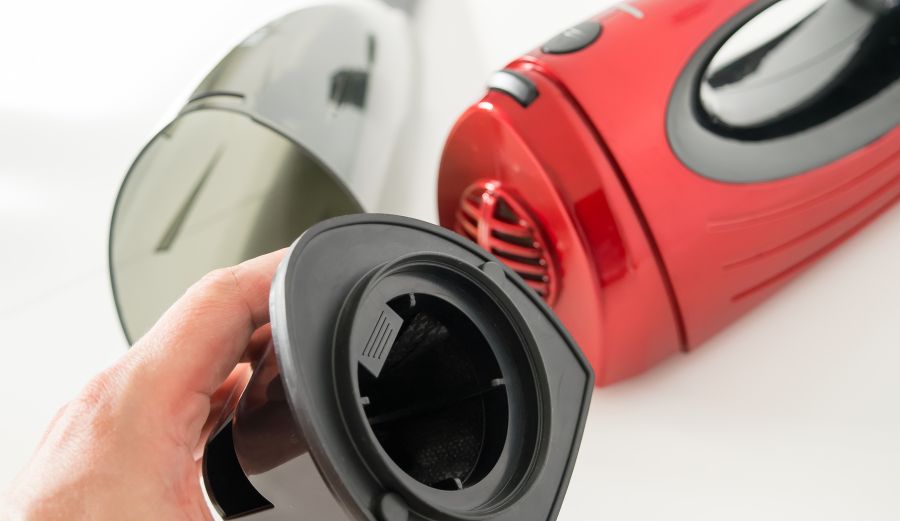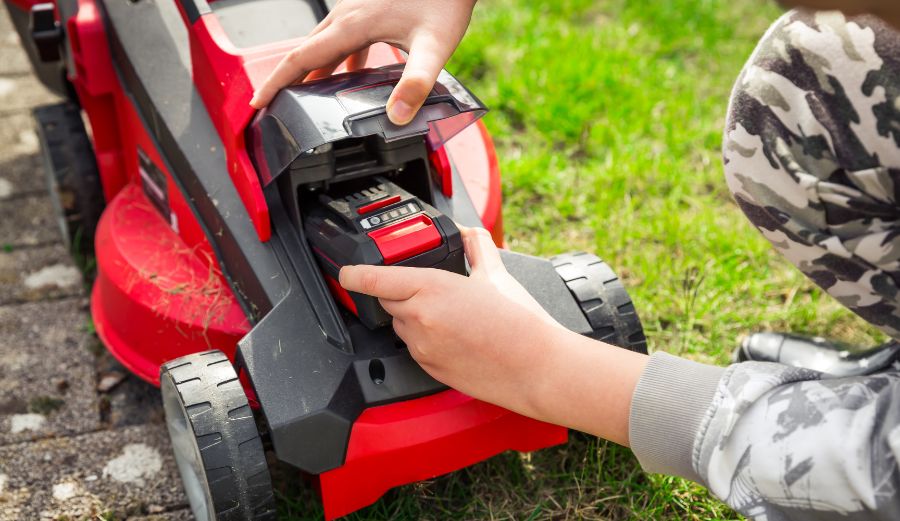
How long does a lawn mower battery last? Unveiling the secrets behind this crucial aspect is paramount for homeowners and lawn care enthusiasts alike.
In this comprehensive guide, we delve into the pivotal role of a lawn mower battery, shedding light on its significance in maintaining a lush and well-manicured lawn. Whether you’re a seasoned gardener or a new homeowner, understanding the lifespan of your mower’s battery is essential for efficient lawn care practices.
Let’s journey to decode the mysteries of How long does a lawn mower battery last?
How Long Does A Lawn Mower Battery Last
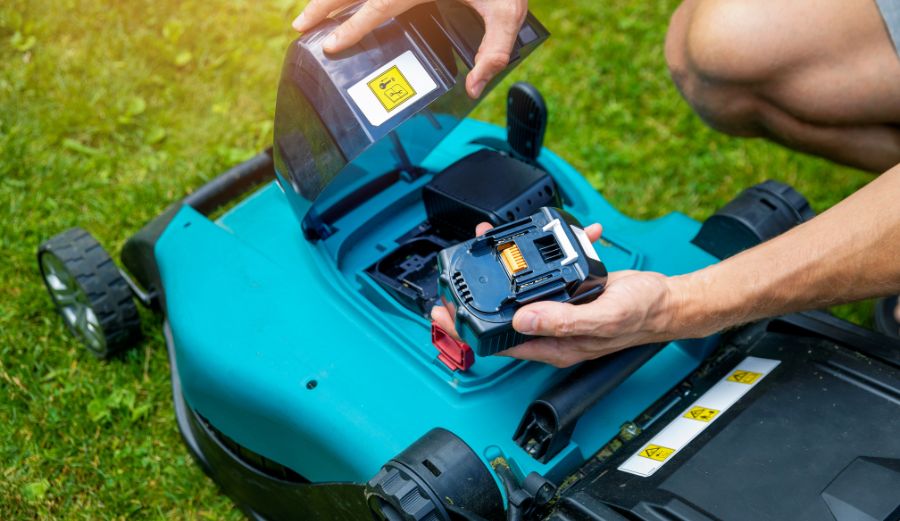
Batteries Plus is your go-to destination when it comes to replacing the battery for your lawn mower or lawn tractor. We offer top-quality batteries from trusted brands like Duracell, each backed by a limited 6-month warranty. A new lawn battery, with proper care, can last between three and five years.
Regular maintenance ensures you get the most extended life possible from your battery. Keep it clean and inspect it regularly for any signs of corrosion, leaks, or damage. Batteries Plus has you covered with reliable options when it’s time for a replacement.
Choosing Batteries Plus for your lawn mower battery needs not only ensures quality but also provides the peace of mind that comes with a trusted warranty. Visit Batteries Plus for all your lawn mower battery solutions, and enjoy a reliable power source for your lawn care equipment.
Understanding Lawn Mower Batteries: Decoding Types and Functions
Knowledge is power when it comes to ensuring the longevity of your lawn mower battery. This section will delve into the two primary types of batteries commonly used in lawnmowers, exploring their unique characteristics, advantages, and drawbacks.
Types of Batteries Commonly Used in Lawn Mowers
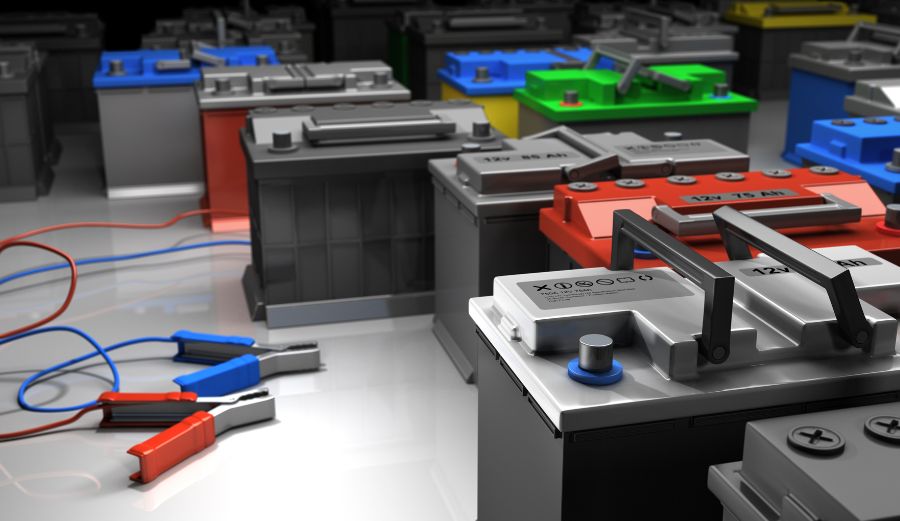
Lead-Acid Batteries:
Lead-acid batteries have long been the stalwarts of the energy storage world. They are known for their reliability and cost-effectiveness in the realm of lawn mowers. These batteries operate on a traditional technology that involves lead plates immersed in an acid solution.
Pros:
- Affordability: Lead-acid batteries are generally more budget-friendly than their counterparts.
- Availability: Widely accessible, making replacements and maintenance straightforward.
Cons:
- Weight: They tend to be heavier, impacting the overall weight of the mower.
- Limited lifespan: Lead-acid batteries may have a shorter lifespan than newer technologies.
Lithium-Ion Batteries:
Lithium-ion batteries represent a more modern and efficient alternative, gaining prominence in various applications due to their lightweight and high energy density.
Pros:
- Lightweight: Lithium-ion batteries are significantly lighter, enhancing maneuverability.
- Longevity: Typically, they have a longer lifespan than lead-acid batteries.
- Fast charging: They can be charged quickly, reducing downtime.
Cons:
- Cost: Lithium-ion batteries are generally more expensive upfront.
- Complex maintenance: Specialized knowledge may be required for maintenance and repair.
Basic Components and Functions
Understanding lawn mower batteries’ essential components and functions is crucial for informed usage and effective maintenance.
Lead-Acid Batteries:
- Lead Plates: These plates facilitate the chemical reactions that generate electricity.
- Acid Solution: The electrolyte solution, usually sulfuric acid, enables the flow of ions.
Lithium-Ion Batteries:
- Lithium Cobalt Oxide (LiCoO2) Cathode: This material is shared in lithium-ion batteries, contributing to their high energy density.
- Anode and Electrolyte: Comprising a lithium compound and electrolyte, these components enable the movement of ions, producing electrical energy.
Factors Influencing Lawn Mower Battery Lifespan: Navigating
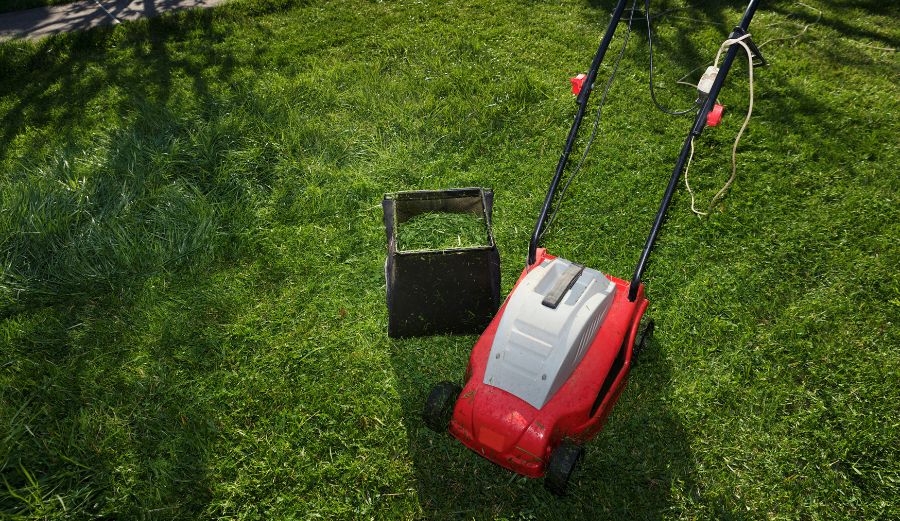
In pursuing a robust and enduring lawn mower battery, understanding the factors that influence its lifespan is paramount. This section delves into the environmental impact and usage patterns that significantly shape the longevity of these essential power sources.
A. Environmental Impact
Temperature Considerations:
Temperature plays a pivotal role in the performance and longevity of your lawn mower battery. Extreme heat or cold can impact the chemical reactions within the battery, affecting its overall efficiency.
Tips for Temperature Management:
- Storage: When not in use, store your mower in a cool, dry place to mitigate temperature extremes.
- Seasonal Awareness: Be mindful of temperature fluctuations during different seasons, adjusting usage accordingly.
Exposure to Moisture:
Moisture is a silent adversary capable of infiltrating the battery and causing corrosion or other damage. Protecting your lawn mower from excessive moisture is crucial for extending its battery life.
Preventive Measures:
- Covering Equipment: Use weather-resistant covers to shield the mower when not in use.
- Regular Checks: Periodically inspect the battery compartment for signs of moisture and address any issues promptly.
B. Frequency of Use
Regular Usage Patterns:
The frequency and consistency with which you use your lawn mower directly impact its battery life. Regular usage and proper maintenance can contribute to a longer, more reliable battery lifespan.
Best Practices:
- Scheduled Usage: Establish a routine for lawn maintenance to avoid prolonged periods of inactivity.
- Proper Charging: Charge the battery regularly, even during off-seasons, to maintain optimal performance.
Seasonal Variations:
Seasonal changes introduce distinct challenges for lawn mower batteries. Understanding and adapting to these variations are essential for mitigating potential issues.
Adaptation Strategies:
- Winterization: Implement proper winterization procedures to safeguard the battery during colder months.
- Summer Precautions: Shield the mower from excessive heat and ensure adequate ventilation to prevent overheating.
By being mindful of these environmental and usage factors, you pave the way for a resilient lawn mower battery that stands the test of time. In our next segment, we’ll explore the telltale signs that indicate your battery may be nearing the end of its lifespan and how to conduct a thorough battery health check. Stay tuned for actionable insights into maintaining a healthy and long-lasting power source for lawn care needs.
Signs of a Failing Lawn Mower Battery: Recognizing Red Flags

As your lawn mower battery ages, it exhibits telltale signs of deterioration that can impact overall performance. Understanding these signals is crucial for timely intervention and preventing unexpected breakdowns.
A. Common Symptoms of Battery Deterioration
Slow Cranking:
A noticeable delay in the engine cranking when starting your mower is a classic indicator of a weakening battery. Suppose your mower is struggling to start, or the engine is turning over slowly. In that case, it’s time to investigate the battery’s condition.
Diminished Performance:
As a battery loses its vitality, you may observe a gradual decline in overall performance. This can manifest as weaker cutting power, reduced blade speed, or inconsistent operation. The battery might be the culprit if your mower’s efficiency seems compromised.
B. How to Conduct a Battery Health Check
Regular battery health checks are essential to catch issues early and ensure optimal performance. Here’s a simple guide to assess the condition of your lawn mower battery:
Visual Inspection:
- Inspect the battery for any indications of corrosion, leaks, or structural damage.
- Ensure cables are securely connected with no fraying.
Voltage Testing:
- Use a multimeter to measure the battery’s voltage.
- A 12-volt battery that is fully charged typically registers at approximately 12.6 volts.
Load Testing:
- Conduct a load test to evaluate the battery’s ability to deliver power under stress.
- Seek professional assistance if the battery fails these tests.
Check Fluid Levels (for Lead-Acid Batteries):
- If your mower uses a lead-acid battery, check the electrolyte levels and add distilled water if necessary.
Professional Inspection:
- Consider consulting a professional for a comprehensive battery analysis.
- Professionals can provide insights into potential issues not visible through basic checks.
By staying vigilant and conducting regular battery health checks, you empower yourself to address potential problems proactively. In our next segment, we’ll explore practical strategies to extend your lawn mower battery’s lifespan, ensuring reliable performance throughout the seasons. Stay tuned for actionable tips on maximizing the efficiency of your essential lawn care equipment.
Maximizing Your Mower's Juice: Tips for Extending Battery Life

Charge Smart, Charge Right:
- Optimal Charging Intervals: Discover the sweet spot for charging to keep your battery in prime condition.
- Say No to Overcharging: Learn the art of preventing overcharging to prolong the life of your mower’s powerhouse.
Storing Wisely, Powerfully:
- Winterizing Wonders: Uncover effective strategies for winterizing your battery to combat the cold.
- Prep for Hibernation: Explore tips for preparing your battery during extended periods of inactivity, ensuring it wakes up ready to roll.
Power Upkeep: Maintaining Your Mower Battery

Shine and Inspect:
- Keep it Clean: Learn the art of safely cleaning your battery to ensure optimal performance.
- Eagle Eyes Inspection: Discover how inspecting your battery regularly can uncover potential issues before they escalate.
Out with the Old, In with the Renewed:
- Replacement Revelations: Know when to bid farewell your old battery and welcome a new one.
- Revitalize and Refurbish: Explore techniques to breathe new life into aging batteries, saving money and reducing environmental impact.
Wrap Up
In conclusion, unraveling the mysteries of how long a lawn mower battery lasts is critical to uninterrupted lawn care. Regular maintenance, optimal charging practices, and environmental considerations are crucial for prolonging battery life. By proactively caring for your battery, you extend its lifespan, ensuring reliable performance season after season.
A well-maintained battery powers your mower and preserves your pristine lawn. Stay proactive, and your lawn mower battery will reward you with longevity and sustained efficiency.
FAQs: How Long Does a Lawn Mower Battery Last?
Q: How long can I expect my lawn mower battery to last?
A: The lifespan of a lawn mower battery varies, but typically, with proper care and maintenance, you can expect it to last between three to five years.
Q: Does the frequency of lawn mower usage impact the battery’s lifespan?
A: Yes, it does. Regular usage is beneficial for the battery’s health. Infrequent use or extended periods of inactivity can lead to a shorter lifespan. It’s recommended to follow a consistent usage schedule.
Q: What factors influence the lifespan of a lawn mower battery?
A: Environmental factors, such as temperature and exposure to moisture, play a significant role. Additionally, the battery’s maintenance, charging practices, and battery type can influence its lifespan.
Q: Can extreme temperatures affect the longevity of my lawn mower battery?
A: Yes, extreme temperatures, both hot and cold, can impact the chemical reactions within the battery, affecting its performance and lifespan. Proper storage and seasonal considerations are crucial for preserving the battery.
Q: How can I maximize the lifespan of my lawn mower battery?
A: Regular maintenance, including cleaning and inspection, is essential. Follow proper charging techniques, avoid overcharging, and store the battery correctly during the off-season. These practices can significantly extend the life of your lawn mower battery.
Q: Do You Need to Add Water to a Lawn Mower Battery?
A: It depends on the type of battery your lawn mower uses.
Lead-Acid Batteries:
Yes: Lead-acid batteries often require periodic water additions. Check the electrolyte levels regularly and add distilled water to maintain the proper level, typically covering the plates.
Lithium-Ion Batteries:
No: Lithium-ion batteries, on the other hand, are sealed and maintenance-free. They don’t require adding water, and it’s crucial not to attempt opening the closed cells.
Always refer to your specific battery’s user manual for accurate maintenance and water addition information. If uncertain, consult with the battery manufacturer or a professional for guidance.
